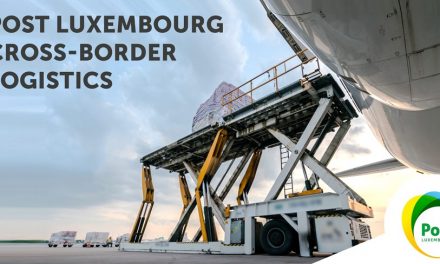
Customs must improve for cross-border e-commerce to flourish
Postal industry experts warned this week that more must be done to improve customs systems and procedures around the world if cross-border e-commerce is to flourish. The potential was seen as huge at this week’s World Mail & Express Americas conference in Miami for increasing global trade and parcel volumes by making it easier and more transparent for Internet shoppers to make purchases via foreign websites.
Rising Internet penetration rates among developing countries and growing consumer confidence regarding online transactions has seen e-commerce activity growing at double-digit rates around the world.
But while domestic ecommerce is growing rapidly, experts at the conference said cross-border ecommerce is growing at a much slower rate.
Giselle Valera, vice president of global business at the US Postal Service, said figures from the EU suggested the proportion of Europeans shopping online has risen from 44% to 57% in the five years to 2010, but the proportion shopping cross-border has edged up only a few points in that time, to 7%.
Valera and others at this week’s event, including Swiss Post’s head of global sales management, Adriano Nicoliello, identified the need for consumers to have a known all-in-one “landed cost” for their purchase as crucial to securing a purchase, along with a reliable delivery time.
Customs was pinpointed as a key area of uncertainty that can seriously disrupt the entire process.
As well as making the whole process more complicated, customs clearance can add significant costs and delays to the purchase, hinder the returns process and even stop items from being delivered at all.
“Trust deficit”
Charles Prescott, the executive director of the Global Address Data Association and a member of the Universal Postal Union’s consultative committee, said when it came to online commerce, consumer confidence was all-important, but that for cross-border purchasing, the international postal system had something of a “trust deficit”.
He said: “Most things get through, but some do not. A big problem that needs solving is customs. Customs can destroy the trust between a Post and its customer, because customers think the Post is in control, but we all know that they are not.”
Speaking from a Central American perspective, where Internet penetration rates are also growing and e-commerce becoming important, Alvaro Rodriguez, the president of Correos de Costa Rica, said there was “no doubt” that customs was a “major barrier” to cross-border shipping.
Rodriguez said: “We are working with other postal organisations to allow expedited paths for goods to enter the country. In international trade, it would be much better if the customs systems were more agile, cheaper and more transparent.”
Dr Serrana Bassini, the secretary general of the Postal Union of the Americas, Spain and Portugal (UPAEP), also spoke of the work being undertaken with governments and customs organisations to tackle a key issue.
She said there was also a committee in the Universal Postal Union that was focusing on customs.
The UPAEP was supporting the efforts, she added. “We are working very hard on this issue and it does worry us, not only at the regional level but also worldwide,” said Bassini. “I believe governments will have to move quickly if we want to prioritise e-commerce.”












